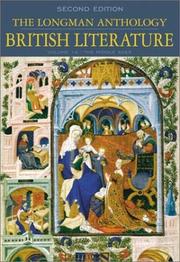Check nearby libraries
Buy this book

At the present time, there are five languages in Britain, just as the divine law is written in five books, all devoted to seeking out and setting forth one and the same kind of wisdom, namely the knowledge of sublime truth and of true sublimity. These are the English, British, Irish, Pictish, as well as the Latin languages; through the study of the scriptures, Latin is in general use among them all.
Bede, Ecclesiastical History of the English People
The Venerable Bede’s famous and enormously influential Ecclesiastical History of the English People, written in the early 700s, reflects a double triumph. First, its very title acknowledges the dominance by Bede’s day of the Anglo-Saxons, who, centuries earlier, had established themselves on an island already inhabited by Celtic Britons and by Picts. Second, the Latin of Bede’s text and his own life as a monk point to the presence of ancient Mediterranean influences in the British Isles, earlier through Rome’s military colonization of ancient Britain and later through the conversion of Bede’s people to Roman Christianity.
In this first chapter of his first book, Bede shows a complex awareness of the several populations still active in Britain and often resisting or encroaching on Anglo-Saxon rule, and much of his History narrates the successive waves of invaders and missionaries who had brought their languages, governments, cultures, and beliefs to his island. This initial emphasis on peoples and languages should not be taken as early medieval multiculturalism, however: Bede’s brief comparison to the single truth embodied in the five books of divine law also shows us his eagerness to draw his fragmented world into a coherent and transcendent system of Latin-based Christianity.
It is useful today, however, to think about medieval Britain, before and long after Bede, as a multilingual and multicultural setting, densely layered with influences and communities that divide, in quite different ways, along lines of geography, language, and ethnicity, as well as religion, gender, and class. These elements produced extraordinary cultures and artistic works, whose richness and diversity challenge the modern imagination. The medieval British Isles were a meeting place, but also a point of resistance, for wave after wave of cultural and political influences. Awareness of these multiple origins, moreover, persisted. In the mid-thirteenth century, Matthew Paris’s map of England (Color Plate 4) reflects an alertness to the complex geography of history and settlement on his island. Six hundred years after Bede we encounter a historian like Sir Thomas Gray complaining that recent disorders were “characteristic of a medley of different races. Wherefore some people are of the opinion that the diversity of spirit among the English is the cause of their revolutions” (Scalacronica, c. 1363).
Check nearby libraries
Buy this book

| Edition | Availability |
|---|---|
|
1
The Longman Anthology of British Literature: Volume 1A, The Middle Ages
August 16, 2002, Pearson Education, Inc.
Paperback
in English
- 2nd Edition
0321106679 9780321106674
|
aaaa
Libraries near you:
WorldCat
|
Book Details
Table of Contents
Edition Notes
This item is out of print and has been replaced with Longman Anthology of British Literature, Volume 1A, The: The Middle Ages, 4th Edition https://web.archive.org/web/20191122175334/https://www.pearson.com/us/higher-education/product/Damrosch-Longman-Anthology-of-British-Literature-Volume-1-A-The-Middle-Ages-The-3rd-Edition/9780321333919.html?tab=contents
Classifications
Contributors
The Physical Object
ID Numbers
Work Description
Literature has a double life. Born in one time and place and read in another, literary works are at once products of their age and independent creations, able to live on long after their original world has disappeared. The goal of this anthology is to present a wealth of poetry, prose, and drama from the full sweep of the literary history of Great Britain and its empire, and to do so in ways that will bring out both the works’ original cultural contexts and their lasting aesthetic power. These aspects are, in fact, closely related: Form and content, verbal music and social meanings, go hand in hand. This double life makes literature, as Aristotle said, “the most philosophical” of all the arts, intimately connected to ideas and to realities that the writer transforms into moving patterns of words.
The challenge is to show these works in the contexts in which, and for which, they were written, while at the same time not trapping them within those contexts. The warm response this anthology has received from the hundreds of teachers who have adopted it in its first two editions reflects the growing consensus that we do not have to accept an “either/or” choice between the literature’s aesthetic and cultural dimensions. Our users’ responses have now guided us in seeing how we can improve our anthology further, so as to be most pleasurable and stimulating to students, most useful to teachers, and most responsive to ongoing developments in literary studies.
Links outside Open Library
Community Reviews (0)
Feedback?| August 19, 2020 | Edited by ImportBot | import existing book |
| November 22, 2019 | Created by Brittany Bunk | Edited without comment. |










